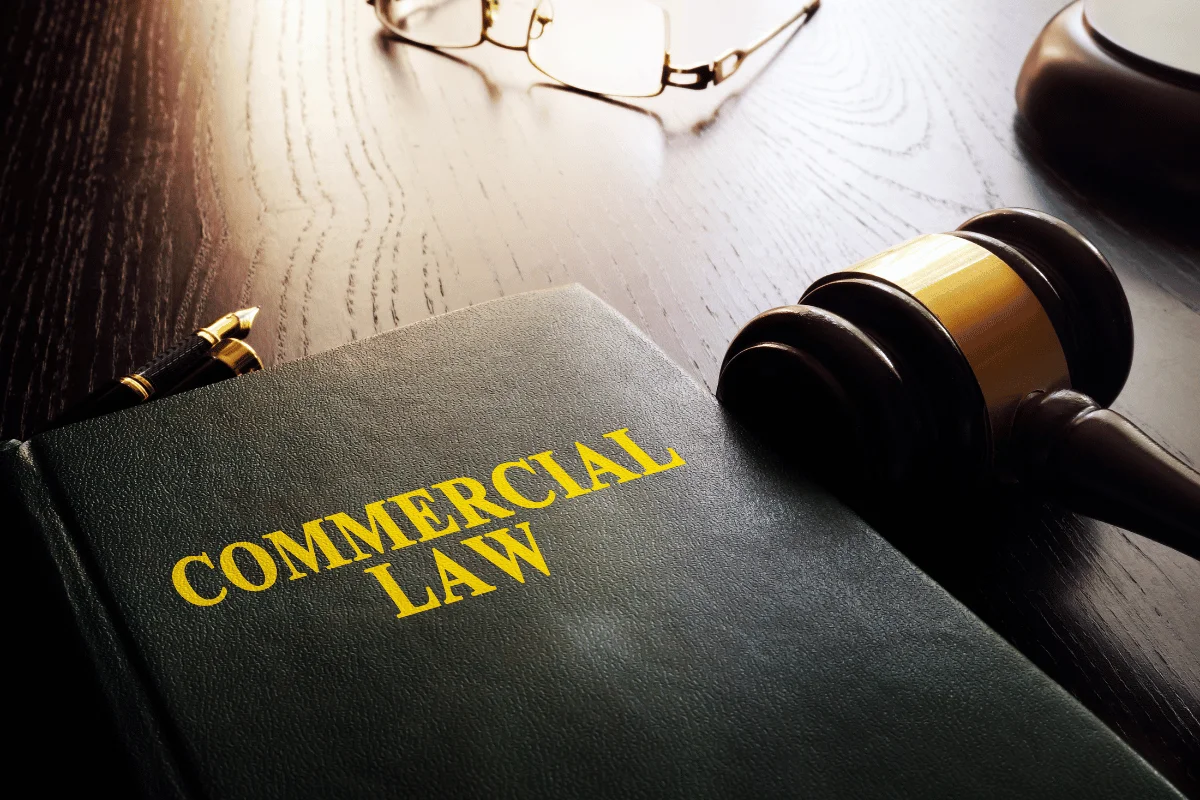Choosing the right commercial lawyer is a crucial decision for any business operating in Australia. Lawyers in this field provide essential services that help prevent potential conflicts and ensure compliance with laws and regulations. This article will guide you through understanding the role of commercial lawyers, the criteria for selecting the best ones, the process of finding them, making the final decision, and maintaining a successful relationship.
Understanding the role of commercial lawyers
Commercial lawyers are legal professionals who specialise in business law. Their primary role is to protect the interests of businesses, ensuring they operate within the legal framework while offering guidance on various matters that can impact their operations.
The importance of commercial law in business
The realm of commercial law covers extensive areas, including contracts, property transactions, partnerships, and compliance with statutory obligations. Understanding this law is paramount for businesses to mitigate risks associated with disputes or litigation. A skilled commercial lawyer can help identify potential legal pitfalls and create strategies to avoid them.
Moreover, commercial law plays a fundamental role in fostering trust between businesses and their stakeholders. With the proper legal framework, companies can engage effectively with clients, suppliers, and investors, thereby promoting healthy business relationships. This trust is essential not only for day-to-day operations but also for long-term sustainability. For instance, a well-drafted contract can clarify expectations and responsibilities, reducing the likelihood of misunderstandings that could lead to costly disputes. Furthermore, businesses that adhere to legal standards are often viewed more favourably by consumers, enhancing their reputation in the marketplace.
Key areas of expertise in commercial law
Commercial lawyers are adept in various areas, including but not limited to:
- Corporate governance and compliance
- Contract law and negotiations
- Intellectual property rights
- Dispute resolution and litigation
- Employment law and workplace relations
Each of these areas contributes significantly to the functioning of a business. Depending on the specific needs of a company, a commercial lawyer with expertise in one or more of these domains can provide tailored advice that aligns with the company’s objectives. For example, in the realm of intellectual property, a commercial lawyer can assist businesses in protecting their innovations and branding, which is increasingly vital in today’s competitive market. Additionally, as businesses expand globally, understanding the nuances of international commercial law becomes crucial, as it can affect everything from trade agreements to compliance with foreign regulations.
Furthermore, the landscape of commercial law is constantly evolving, particularly with the rise of digital technologies and e-commerce. Lawyers must stay abreast of changes in legislation and emerging trends, such as data protection and cybersecurity laws, which can have significant implications for businesses operating online. This adaptability is essential, as it enables commercial lawyers to offer proactive advice that not only addresses current legal challenges but also anticipates future developments that could impact their clients’ operations.
Criteria for selecting a top commercial lawyer
Selecting the right commercial lawyer requires careful consideration of various criteria. This includes evaluating their qualifications, experience, and communication abilities, which are all critical in fostering a successful working relationship.
Assessing qualifications and experience
When looking for a commercial lawyer, it’s essential to assess their qualifications and relevant experience. A lawyer with a strong academic background and practical experience in commercial law will significantly enhance the quality of legal support offered. It’s advisable to look for lawyers who have:
- A law degree from a recognised institution
- Relevant professional memberships and accreditations
- Experience working with businesses similar to yours, particularly in your industry
Experience in negotiations, dispute resolution, and drafting contracts can also be considerable assets. Thus, be sure to review their track record in these areas during your selection process. Additionally, consider their familiarity with the specific legal frameworks that govern your industry, as this can greatly influence their ability to provide tailored advice. A lawyer who understands the nuances of your sector will be better equipped to foresee potential legal challenges and offer proactive solutions.

Evaluating communication skills and responsiveness
The ability to communicate complex legal issues in an understandable manner is a vital trait for a commercial lawyer. This ensures that you are always informed and involved in important decisions affecting your business. Furthermore, responsiveness is critical, as timely communication can prevent misunderstandings and facilitate swift action in urgent matters.
During your initial interactions, note how the lawyer responds to your questions. A good lawyer will be keen to listen and address your concerns thoroughly. It’s important to feel comfortable expressing your needs and asking for clarifications. Moreover, consider their approach to client engagement; a lawyer who prioritises building a rapport with you is likely to be more invested in your business’s success. They should also demonstrate a proactive attitude, keeping you updated on relevant legal developments that may impact your operations, thereby positioning you to make informed strategic decisions.
The process of finding a commercial lawyer in Australia
Finding the right commercial lawyer involves several steps. Each stage is crucial in ensuring you select a legal professional who meets your specific needs and can effectively support your business goals.
Utilising online resources and directories
The internet provides a wealth of resources for locating commercial lawyers in Australia. Legal directories, professional associations, and review websites can offer valuable insights into potential candidates. Some reputable resources include:
- The Law Society of New South Wales
- The Australian Bar Association
- Legal 500 and Chambers and Partners for rankings
These platforms allow you to read reviews, check qualifications, and identify lawyers who specialise in areas relevant to your business. Ensure to gather comprehensive information before making a selection. Furthermore, many legal firms maintain their own websites, which often provide detailed profiles of their lawyers, including their areas of expertise, notable cases, and client testimonials. This can be particularly beneficial in understanding a lawyer’s approach and whether it aligns with your business ethos.
Seeking recommendations and referrals
Networking can be an effective way to find competent commercial lawyers. Speak to other business owners or professionals within your industry, as they may provide personal recommendations based on their experiences. Referrals can lend credibility to a lawyer’s expertise and may introduce you to someone you might not have discovered through online methods.
Additionally, you can consult your other advisers, such as accountants or financial advisers, who may have established relationships with commercial lawyers and can recommend trustworthy individuals. Engaging with local business groups or chambers of commerce can also yield valuable contacts. These organisations often host networking events where you can meet legal professionals in a more informal setting, allowing you to gauge their personality and approach before making a formal inquiry. This personal interaction can be instrumental in building a rapport, which is essential for a successful lawyer-client relationship.
Making the final decision
Once you have compiled a shortlist of potential lawyers, it’s time to make the final decision. This process involves several key steps to ensure the selected professional aligns with your business’s needs.
Scheduling initial consultations
Many lawyers offer initial consultations either for free or at a low cost. Take advantage of this opportunity to discuss your business and legal needs. Use this time to gauge their expertise, communication skills, and overall compatibility with your business philosophy.
During the consultation, ask pertinent questions regarding their approach to handling cases, their experience with businesses in your sector, and how they plan to address your specific legal concerns. Pay attention to the lawyer’s willingness to engage with you and take your concerns seriously. It can also be beneficial to assess their understanding of current legal trends and regulations that may impact your industry, as this knowledge can be invaluable in navigating potential challenges.

Comparing fees and billing structures
Understanding a lawyer’s fees and billing structures is crucial during your selection process. Legal costs can vary significantly, so ensure you have clarity on how they structure their fees. Typical billing structures include:
- Hourly rates
- Flat fees for specific services
- Retainer agreements for ongoing services
Make sure to ask about any potential additional costs or fees and compare quotes from different lawyers. This will help you gauge the value of services offered relative to their cost. Additionally, consider the potential return on investment that a lawyer can provide; a more experienced lawyer may charge higher fees but could ultimately save your business money by avoiding costly legal pitfalls or by negotiating better terms in contracts.
Furthermore, it is wise to inquire about their billing practices in terms of transparency and communication. A lawyer who provides detailed invoices and is open to discussing their billing can help foster a trusting relationship. This transparency can also prevent any unexpected financial surprises down the line, allowing you to budget effectively for your legal expenses. Engaging with a lawyer who prioritises clear communication about fees can enhance your overall experience and provide peace of mind as you navigate complex legal matters.
Maintaining a successful relationship with your commercial lawyer
After selecting a commercial lawyer, nurturing a productive relationship is essential for your business’s success. Establishing clear expectations and maintaining open lines of communication can significantly improve the collaboration.
Setting clear expectations from the start
From the outset, it is crucial to discuss your expectations openly. Define the scope of work, timelines, and any specific goals you wish to achieve through legal support. Being transparent about your needs allows your lawyer to align their services effectively.
Additionally, consider discussing preferred communication channels, frequency of updates, and any reporting structures. This way, both parties will be on the same page, reducing the chances of misunderstandings.
See Also : Why Businesses Trust Commercial Lawyers in Sydney
The importance of regular communication and updates
Maintaining regular communication with your commercial lawyer is vital for a successful partnership. Schedule ongoing check-ins to discuss any developments in your business and ensure that your lawyer is aligned with your strategic goals.
Frequent updates will also enable you to stay informed about any changes in the legal landscape that could impact your business. Ultimately, a good lawyer will be a collaborative partner in your business’s growth and success, not just a consultant you engage during conflicts.
In conclusion, finding the best commercial lawyers in Australia involves a thorough understanding of their role, careful selection criteria, and a commitment to maintaining a productive relationship. By following the steps outlined in this article, you can ensure that your business has the legal support necessary to thrive and navigate the complexities of commercial law.



